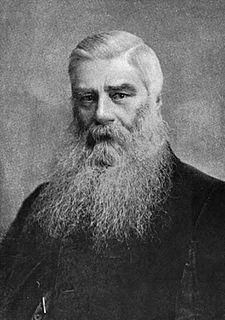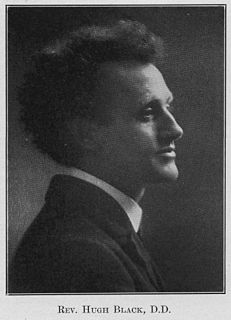A Quote by Aristotle
A good man may make the best even of poverty and disease, and the other ills of life; but he can only attain happiness under the opposite conditions
Related Quotes
Take the case of just actions; just punishments and chastisements do indeed spring from a good principle, but they are good only because we cannot do without them - it would be better that neither individuals nor states should need anything of the sort - but actions which aim at honor and advantage are absolutely the best. The conditional action is only the choice of a lesser evil; whereas these are the foundation and creation of good. A good man may make the best even of poverty and disease, and the other ills of life.
So the absurdity of happiness is that it is embarrassing to discuss or even mention, impossible to define or measure, may not be achievable at all - or, at best, only intermittently and unconsciously - and may even turn into its opposite if directly pursued, but that it frequently turns up unexpectedly in the course of pursuing something else. There is no tease more infuriating...It is tempting to forget the whole thing and simply fall back on the couch with a remote control in one hand and a beer in the other.
This Congress did more to uplift education, more to attack disease in this country and around the world, and more to conquer poverty than any other session in all American history, and what more worthy achievements could any person want to have? For it was the Congress that was more true than any other Congress to Thomas Jefferson's belief that: 'The care of human life and happiness is the first and only legitimate objective of good Government.'
There's no way in which you can ever win a war against terror. As long as there are conditions in many parts of the world that make people desperate: poverty, disease, ignorance, etc. I hope that we will discover soon, that we can survive, only together. We can prosper only together. And I think people are beginning to realize this, that you can't have pockets of prosperity in one part of the world and huge deserts of poverty and deprivation and think you can have a stable, secure world.
If happiness is a state of the inward life, we have to look for its chief obstructions not in outward conditions but in deeper places. Happiness depends in the last issue, as we saw, on the essential view of life. It is not a matter of distractions, nor even of mere pleasurable sensations. There may be an appearance of great prosperity with incurable sadness hidden at the heart, as there is an outward peace which is only a well-masked despair. The way to happiness is indeed harder than the way to success; for its chief enemies entrench themselves within the soul.
The ancient man approached God (or even the gods)as the accused person approaches his judge. For the modern man the roles are reversed. He is the judge: God is in the dock. He is quite a kindly judge: if God should have a reasonable defense for being the god who permits war, poverty, and disease, he is ready to listen to it. The trial may even end in God's acquittal. But the important thing is that Man is on the bench and God is in the dock.
Lenten practices of giving up pleasures are good reminders that the purpose of life is not pleasure. The purpose of life is to attain to perfect life, all truth and undying ecstatic love - which is the definition of God. In pursuing that goal we find happiness. Pleasure is not the purpose of anything; pleasure is a by-product resulting from doing something that is good. One of the best ways to get happiness and pleasure out of life is to ask ourselves, 'How can I please God?' and, 'Why am I not better?' It is the pleasure-seeker who is bored, for all pleasures diminish with repetition.
If there ever was a pursuit which stultified itself by its very conditions, it is the pursuit of pleasure as the all-sufficing end of life. Happiness cannot come to any man capable of enjoying true happiness unless it comes as the sequel to duty well and honestly done. To do that duty you need to have more than one trait. From the greatest to the smallest, happiness and usefulness are largely found in the same soul, and the joy of life is won in its deepest and truest sense only by those who have not shirked life's burdens.
Sometimes life is hard. Things go wrong—in life and in love and in business and in friendship and in health and in all the other ways that life can go wrong. And when things get tough, this is what you should do: make good art. . . . Someone on the internet thinks what you’re doing is stupid or evil or it’s all been done before: make good art. Probably things will work out somehow, eventually time will take the sting away, and it doesn’t even matter. Do what only you can do best: make good art.
No man is invincible, and therefore no man can fully understand that which would make him invincible. Even with complete and thorough study there is always the possibility of being defeated and although one may be expert in a particular form, mastery is something a man never stops seeking to attain.







































